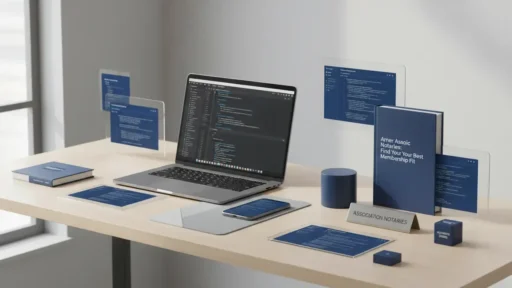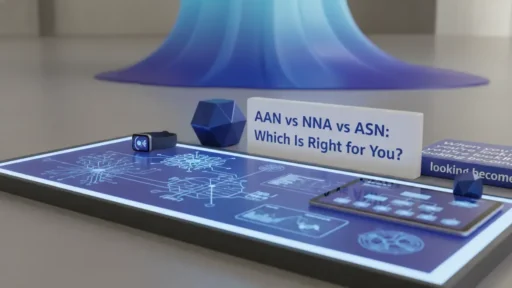Sorting through the steps to buy or sell a vehicle in Arizona might feel confusing especially with the need to know about a notarized bill of sale. This document acts as proof of the deal and is a must-have to transfer ownership for both buyer and seller.
The DMV in Arizona has set rules you need to follow to avoid trouble. Knowing when to notarize a bill of sale and understanding the process can help prevent issues in the future. Whether it’s your first time buying or selling a car or you’ve done it before, a notarized bill of sale makes everything easier to manage.
What Does an AZ DMV Notarized Bill of Sale Do?
An AZ DMV notarized bill of sale acts as an official document in Arizona to transfer vehicle ownership . It shows proof of the sale and agreement between the buyer and seller. This form lists the vehicle’s make, model, year, VIN, sale amount, and the full names and addresses of both parties involved.
A notary public confirms the genuineness of the signatures on this document to show that both people entered the deal . To meet legal rules in Arizona, residents need to get this bill notarized. The Arizona DMV might turn down the transfer paperwork if the notarized bill of sale is incomplete, which could stop the new owner from registering the car.
Why a Notarized Bill of Sale Matters
When handing over vehicle ownership in Arizona, a notarized bill of sale plays a key role. It serves as more than just a document. It gives legal proof and adds a layer of security.
Legal Safeguards
A notarized bill of sale protects the buyer and the seller by acting as a legal document. It confirms the terms and details of the sale. If disagreements happen, like problems with payment or the condition of the vehicle, this notarized paper can settle things with clear proof. Arizona law requires notarization to confirm it’s genuine, which stops most fake claims from working.
Ownership Transfer Evidence
A notarized bill of sale shows that the car’s ownership has been passed on. It lists details such as the vehicle identification number (VIN), the sale price, the date of the sale, and the names and information of the buyer and seller. Having it notarized confirms that both parties agreed to the sale in person making it easier for the new owner to register and title the car with the DMV. This document also avoids confusion or disagreements about who owns or is responsible for the vehicle.
Steps to Finish an AZ DMV Notarized Bill of Sale
Finishing a notarized bill of sale needed by the Arizona DMV requires a few easy actions. Completing these ensures the vehicle transaction stays smooth and follows legal requirements.
Gather Required Details
Preparing a bill of sale starts with compiling all the necessary information. Please fill in the make, model, and year of the vehicle, VIN, mileage at sale. Please address the buyer and seller’s names and addresses, and their driving license numbers. Verify all information carefully to avoid mistakes that will cause issues when notarizing.
Fill Out the Bill of Sale Form
After collecting the information, complete the bill of sale form provided by the AZ DMV. Double-check that every section is filled o-ut. Make a note of the purchase price, the sale date, and any other terms that were agreed on between the two parties. Both parties must sign the document. Remember, leaving parts incomplete or forgetting important information could make the form useless.
Notarization Process
Bring the finalized bill of sale to a notary public to get it notarized. It is also necessary for the buyer and seller to bring valid identification cards. In addition to confirming their identities, he or she watches them sign the papers and then attaches a notary seal. Bills of sale are authenticated by this seal.
Following these steps ensures the vehicle sale meets Arizona DMV’s rules.
Mistakes People Often Make
When writing a notarized bill of sale to meet Arizona DMV’s rules certain mistakes can slow everything down.
Missing Details
Some buyers and sellers don’t include every necessary detail in the bill of sale. Key info like VIN, make, model, year, and sale price needs to be listed. Leaving out something like the VIN or even typing the buyer’s name could make the document unusable. Always make sure you fill out every part of the bill of sale form .
Signatures Left Out
Both parties need to sign the document while a notary public is present. Without a notary witnessing one party’s signature, the bill of sale won’t hold up . The buyer and seller should make sure they sign before the notary, who can then confirm the document is valid.
How to Find an AZ DMV Notarized Bill of Sale Form
You can find the AZ DMV notarized bill of sale form from different places. Official sites nearby DMV offices, and notary services are the main options.
- Official Websites: You can find the bill of sale form on the Arizona Department of Transportation website. Head to the ADOT portal to download it. Make sure you grab the newest version so it fits the current rules.
- Local DMV Offices: Stop by any Arizona DMV office to pick up a paper copy of the notarized bill of sale. The staff there can help you fill it out and explain how to get it notarized.
- Notary Services: Notary public offices often keep a supply of the Arizona DMV bill of sale forms. They can also help you get the form notarized after you’ve completed it.
While getting the form is simple, make sure the filled-out document has every needed detail. Both parties must sign it while a notary watches to make it legal.
Discover the Power of BlueNotary:
Integrate your Business, Title Company, or Law Firm to Satisfy your Customers and Decrease Turnaround
Get a document Notarized/Sign-up
Join the Free Notary Training Facebook Group
Conclusion
In Arizona, a notarized bill of sale plays an important role in vehicle sales. It confirms both the legality and authenticity of the deal offering protection to the buyer and the seller. To complete a hassle-free ownership transfer, people need to meet notary certification rules and steer clear of common errors. Using the right form from trusted official sources and filling it out helps avoid legal troubles. Both parties must sign it while a notary is present to make everything official.
Common Questions
What does a notarized bill of sale mean?
A notarized bill of sale serves as a legal record of the sale and the transfer of the vehicle’s ownership. A notary public certifies it to confirm that it follows Arizona law and is authentic.
Why is a notarized bill of sale necessary when selling or buying a vehicle in Arizona?
Arizona requires a notarized bill of sale to confirm the transaction, transfer ownership , and record key details about the vehicle and the parties involved.
How can I find the AZ DMV form for a notarized bill of sale?
You can use resources like the Arizona Department of Transportation’s site nearby DMV offices, or notary services to get the Arizona DMV’s notarized bill of sale form.
What information is included in a notarized bill of sale?
A notarized bill of sale must detail the car’s make, model, year, and VIN. It also has to mention the sale price and include the buyer’s and seller’s names and signatures. A notary must witness the signatures.
Can a bill of sale be invalid in Arizona?
Yes, a bill of sale might be invalid if it is missing details required signatures, or notarization. It has to meet Arizona’s legal standards to stay valid.
Do you need the most recent notarized bill of sale form?
Yes, you should use the newest form to follow up-to-date legal rules and avoid any trouble during the sale process.
What are some mistakes to watch out for when performing a bill of sale in Arizona?
Ensure that you do not omit any information or omit signatures. Skipping the step of using a notary public could make the document invalid.








